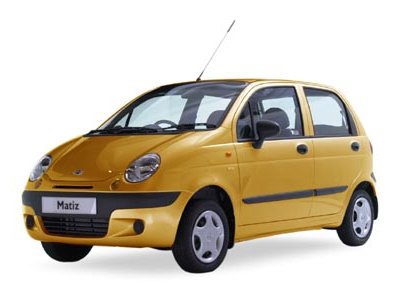November 11, 2003
General Motors Car Design Piracy Problem Getting Bigger in China…

… and that’s with their joint venture partners! GM is finding it increasingly difficult to combat apparent piracy of its automotive designs in China these days, as the Financial Times story I discovered outlines. Making matters worse, it’s joint venture partner owns 20 percent of the pirate! Since the China market is the fastest-growing in the world, everyone is eager for a piece of the action and Chery, the accused, apparently thought GM had a winning design in the Matiz and the Magnus. Here’s the excerpt from the article:
-
General Motors, the world's largest auto company, is investigating the possible pirating of a second of its models by Chery, a fast-growing Chinese carmaker based in central Anhui province. The passenger car under scrutiny is the Magnus, a brand developed by a South Korean unit of the US company, GM Daewoo Automotive & Technology. "It has been brought to our attention that another car coming out of Chery looks similar to one of the GM products," a spokeswoman for GM China said yesterday. The Chery model being examined is believed to be the Oriental Sun, which was launched in July.
GM China has already said it is investigating another Chery vehicle released earlier this year, the QQ, which bears a striking resemblance to a GM mini-car called the Matiz, also produced by Daewoo. GM has just started producing its version of the Matiz in China, rebranded as the Chevrolet Spark. The alleged piracy of Daewoo designs is an especially sensitive issue, as GM's main joint venture partner in China, the Shanghai Automotive Industry Corp, is also a 20 per cent shareholder in Chery.
SAIC executives last month said the Chery problem would be resolved "soon", but did not comment on reports it had long been planning to sell its stake in the Anhui company. Any negotiations to sell the 20 per cent stake is complicated by the fact that the sale would involve the ultimate owners of Chery and SAIC - the governments of Anhui and Shanghai respectively. Chery declined to make an official comment yesterday, but a brand promotion manager in Shanghai said the company had been "subject to some irresponsible speculations and attacks".
"In our design, we mainly rely on ourselves, and learn some good points from international resources," the manager said. Chery previously denied it stole the mini-car design, but on its website has defended its practice of absorbing the "good features" of rival car products during its development phase as a company. Chery, founded in 1997, was one of the success stories of the China car market last year, selling about 50,000 vehicles, a 79 per cent year- on-year increase.
Obviously, all this competition in the Chinese auto market is a good thing – especially for consumers. However, VW, the dominant manufacturer in China these days, is likely to suffer the most in the next few years, as pricing power evaporates and competition heats up in auto pricing. VW realized 80 percent of its global profits from the China market in the past year.
- Arik
Posted by Arik Johnson at November 11, 2003 02:52 PM | TrackBack "Competitive Intelligence applies the lessons of competition and principles of intelligence to the need for every business to gain awareness and predictability of market risk and opportunity. By doing so, CI has the power to transform an enterprise from also-ran into a real winner, with agility enough to create and maintain sustainable competitive advantage."
"Competitive Intelligence applies the lessons of competition and principles of intelligence to the need for every business to gain awareness and predictability of market risk and opportunity. By doing so, CI has the power to transform an enterprise from also-ran into a real winner, with agility enough to create and maintain sustainable competitive advantage."
